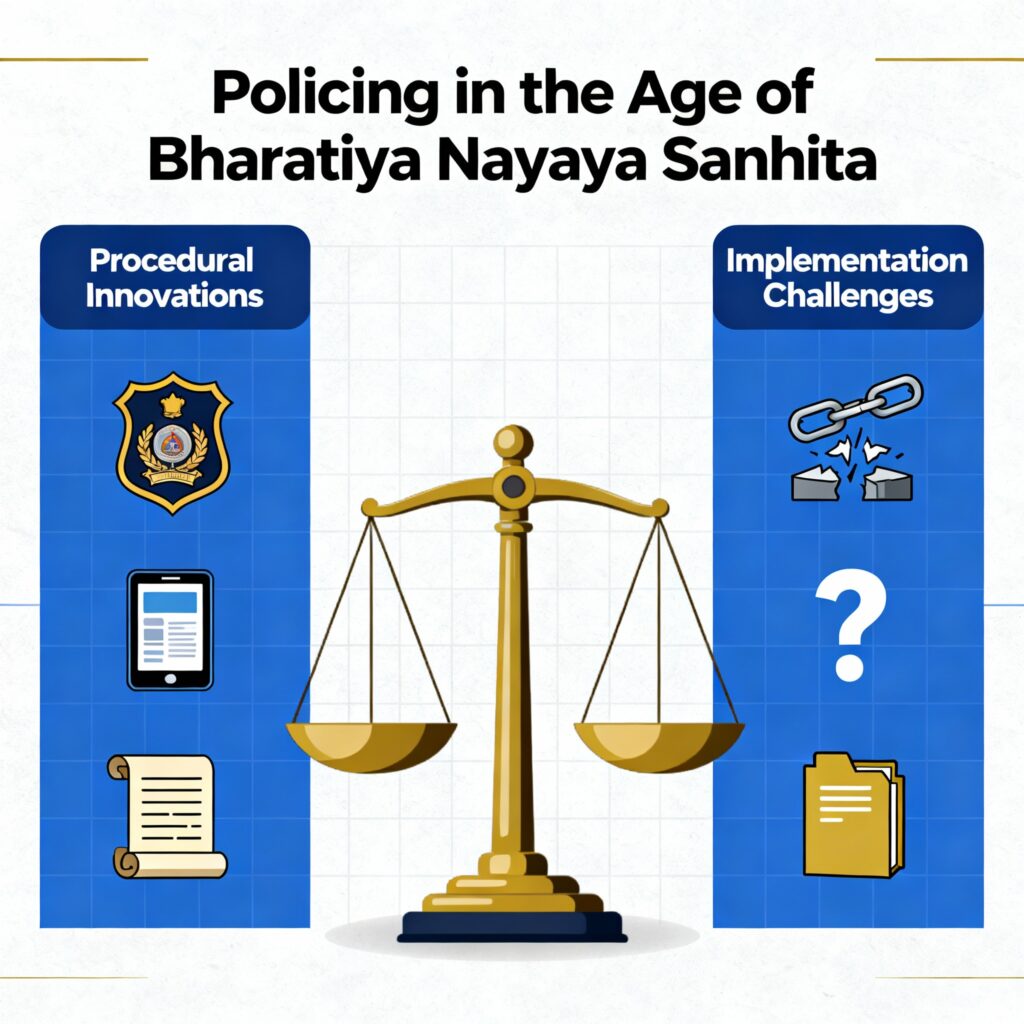Published On: August 23rd 2025
Authored By: Mansi Rathi
Shankarrao Chavan Law College, Pune
Abstract
Digital colonialism refers to the growing dominance of major tech companies—predominantly headquartered in the United States and China—over the data, digital infrastructure, and technological autonomy of other sovereign states. This article delves into how the extraterritorial influence of these corporations disrupts traditional notions of sovereignty, governance, and control. It examines legal, geopolitical, and economic consequences arising from the unregulated digital expansion and proposes ways to reclaim digital autonomy.
Keywords: Digital Colonialism, Tech Giants, Sovereignty, Data Governance, Extraterritoriality, Global South
Introduction
The term ‘digital colonialism’ captures a new wave of imperialism where powerful technology corporations—mainly from the Global North—exercise dominance over digital infrastructure, data, and communications in developing and developed nations alike. These tech behemoths such as Google, Meta (Facebook), Amazon, Apple, and Microsoft (collectively called ‘Big Tech’) often transcend borders, operating across multiple jurisdictions while being effectively regulated by none. The central question is: To what extent do the operations of Big Tech constitute a form of digital imperialism that undermines state sovereignty?
Theoretical Framework: Colonialism in the Digital Age
In traditional colonialism, imperial powers dominated territories economically and politically. In contrast, digital colonialism involves domination through control of data, digital infrastructure, platform monopolies, and algorithmic governance. The Global South becomes not a consumer, but a resource—supplying data, labour (via click farms or outsourced tech work), and dependency on foreign platforms.
This framework considers four pillars:
1. Infrastructure Dependency (e.g., reliance on Western cloud services),
2. Surveillance and Data Extraction,
3. Cultural/Content Hegemony, and
4. Legal Asymmetry in enforcing rights and liabilities.
Understanding Digital Infrastructure Dependency
Digital infrastructure includes physical components such as undersea cables, servers, data centers, and cloud computing networks. Most of these are owned or managed by tech companies from a few powerful countries. For instance, Amazon Web Services (AWS), Microsoft Azure, and Google Cloud dominate the global cloud market. Countries in Africa, South Asia, and Latin America often rely heavily on these services for storing sensitive government and citizen data. This dependency creates a strategic vulnerability. If these companies decide to restrict access—whether due to political pressure, sanctions,
Surveillance Capitalism and Data Extraction
Tech giants use surveillance capitalism to monetize personal data. Every digital interaction—searches, clicks, likes, purchases—generates data that is captured, analyzed, and commodified. This data is used to create detailed profiles, influence behavior, and sell targeted advertisements. However, users often do not know the full extent of what is collected or how it is used. More troubling is the use of this data for purposes beyond commercial gain. Reports have shown that data collected by social media platforms has been used for mass surveillance, predictive policing, and influencing voter behavior, blurring the lines between corporate and state interests.
Extraterritoriality and the Rise of Tech Giants
Tech companies now function as quasi-sovereign entities. They set terms of service that become de facto laws for millions. Their terms override domestic laws, and their extraterritorial reach allows them to affect political discourse, censor content, influence elections, and mine data regardless of national boundaries.
For example, Facebook’s involvement in Myanmar facilitated the spread of hate speech, contributing to the Rohingya crisis. Despite being a private platform, its societal impact was national and political. Google’s control over search algorithms dictates knowledge accessibility and curation for billions, overriding local pedagogical and cultural values. Amazon Web Services (AWS) hosts governments’ and companies’ cloud infrastructure, creating dependencies which states cannot easily undo without serious economic and security implications.
Challenges to State Sovereignty
The sovereignty of a state is undermined in three main ways:
● Jurisdictional Void: Big Tech often operates in a legal grey zone. They collect data in one country, process it in another, and store it in a third—making enforcement of domestic laws complex. Laws like the U.S. CLOUD Act and the EU’s GDPR illustrate how powerful jurisdictions try to impose extraterritorial data rules—often clashing with other national regimes.
● Economic Disruption: These companies extract huge profits from markets they hardly invest in. For instance, India’s internet ecosystem relies heavily on Google and Facebook for advertising, but taxation remains minimal due to loopholes in digital service taxation.
● Cultural and Political Influence: Control over information flows, news visibility, and algorithmic curation allows Big Tech to shape public opinion, sometimes directly conflicting with national interests or regulations.
Responses from the Global South
Countries are increasingly asserting digital sovereignty:
– India’s Draft Digital Personal Data Protection Act (2023) mandates data localization and user consent protocols.
– Nigeria and Kenya have adopted digital economy frameworks to regulate cross-border data flows.
– China’s Great Firewall is a model (albeit controversial) of complete internet sovereignty—though criticized for censorship.
Yet, developing countries face infrastructural and capacity constraints. Their dependence on platforms like Google for education, Meta for communication, and Amazon for logistics limits enforcement options.
Platform Governance and Legal Immunity
Tech platforms govern the digital spaces they create. They set and enforce community guidelines, content moderation policies, and terms of use. This amounts to a form of governance without democratic oversight. For example, when Twitter or Facebook bans content, it acts as judge, jury, and executioner. Moreover, these companies often benefit from ‘safe harbor’ provisions (e.g., under Section 230 of the U.S. Communications Decency Act), which limit their liability for content posted by users. This legal immunity further reinforces their unaccountable power.
Algorithmic Bias and Political Manipulation
Algorithmic decision-making is central to the functioning of digital platforms. Algorithms decide what content users see, which products are recommended, and even which candidates appear more trustworthy. These algorithms are opaque, proprietary, and often biased. In countries with volatile political climates, algorithmic amplification of divisive content has fueled ethnic violence, fake news, and voter manipulation. For instance, during the 2016 U.S. elections and the 2019 Indian general elections, platforms were accused of either facilitating or failing to prevent disinformation campaigns. Such incidents show how Big Tech’s extraterritorial influence can undermine democratic processes and national unity.
National Firewalls and Digital Protectionism
Some countries have responded with digital protectionism—implementing national firewalls, banning foreign apps, and promoting indigenous alternatives. China’s Great Firewall is the most extensive, blocking foreign platforms and nurturing domestic giants like Baidu, WeChat, and Alibaba. India banned over 250 Chinese apps in 2020 citing data security concerns, including TikTok and WeChat. While these moves may protect sovereignty, they also raise questions about freedom of expression, internet openness, and economic retaliation.
Empowering Regional Alliances and Institutions
Regional cooperation can reduce reliance on tech monopolies. The African Union’s Smart Africa initiative aims to promote digital sovereignty and data protection. Similarly, the European Union’s GDPR and Digital Markets Act set global benchmarks for privacy and antitrust regulation. Developing countries can benefit by harmonizing regional laws, sharing infrastructure, and negotiating collectively with Big Tech to level the playing field. These alliances can also build capacity in areas such as cybersecurity, digital literacy, and artificial intelligence.
International Legal Responses and Gaps
International law is largely ill-equipped to regulate private tech actors. The Budapest Convention on Cybercrime, OECD Data Principles, and G20 Osaka Track remain soft-law instruments, lacking binding force or universal acceptance. Attempts to create a UN treaty on digital governance have stalled due to geopolitical tensions between China, Russia, and the West. Meanwhile, the WTO’s e-commerce negotiations reflect the economic divide over cross-border data flows and digital taxation.
A Path Forward: Reclaiming Digital Sovereignty
To resist digital colonialism, states can consider the following strategies:
● Strengthening Domestic Tech Capacity: Investing in open-source software and local alternatives, and promoting public digital infrastructure, e.g., India’s Aadhaar and UPI systems.
● Digital Taxation and Regulation: Implementing digital service taxes (DST) to ensure fair economic contribution. Enhancing data protection laws that include meaningful consent, accountability, and penalties.
● International Cooperation: South-South cooperation on data governance. Regional frameworks like the African Union’s Digital Transformation Strategy or ASEAN’s Digital Masterplan.
● Rebalancing Trade Agreements: Digital chapters in FTAs must recognize states’ right to regulate tech in public interest—akin to environmental or labor safeguards.
Conclusion
The new colonial battleground is digital. While physical empires receded after the 20th century, the control exerted by tech multinationals across borders represents a new kind of hegemony, one that erodes sovereignty without armies or flags. Addressing digital colonialism requires rethinking the role of private actors, reviving multilateral digital governance, and building resilient domestic capabilities. Only then can states ensure autonomy in the age of data.
Refrences:
1. Shoshana Zuboff, The Age of Surveillance Capitalism (PublicAffairs 2019)
2. Nick Couldry and Ulises A. Mejias, ‘Data Colonialism: Rethinking Big Data’s Relation to the Contemporary Subject’ (2019) 20 Television & New Media 336
3. UNCTAD, Digital Economy Report 2021: Cross-border Data Flows and Development
4. Indian Ministry of Electronics and Information Technology, Digital Personal Data Protection Act 2023
5. Arun Mohan Sukumar, Midnight’s Machines: A Political History of Technology in India (Penguin 2019)
6. GDPR Regulation (EU) 2016/679
7. U.S. CLOUD Act, Pub. L. 115–141 (2018)
8. OECD, ‘Guidelines on the Protection of Privacy and Transborder Flows of Personal Data’ (2013)
9. African Union Commission, Digital Transformation Strategy for Africa (2020–2030)



